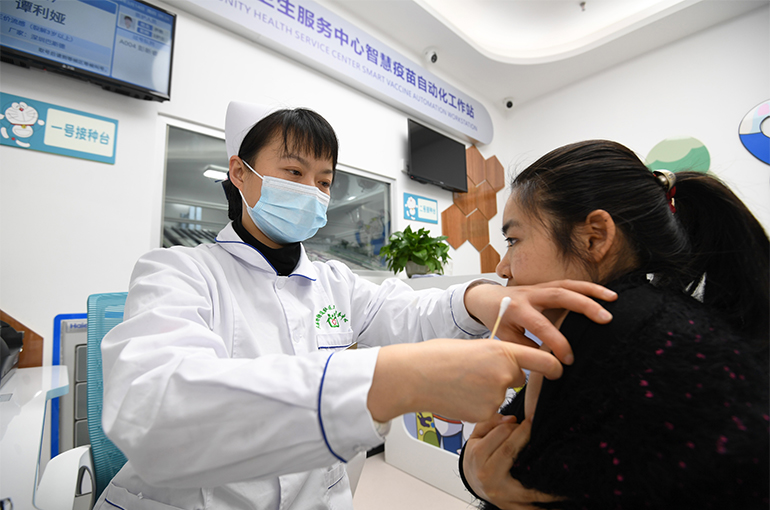 China-Made Bivalent HPV Jab Prices Slump Under Pressure From Rival Imports
China-Made Bivalent HPV Jab Prices Slump Under Pressure From Rival Imports(Yicai) Aug. 6 -- Prices of China’s homegrown bivalent human papillomavirus vaccines have plunged to new lows in the country as the market competition is getting fiercer.
The Shandong Center for Disease Control and Prevention recently bought one million doses of bivalent HPV vaccines produced by Walvax Biotechnology for CNY27.9 million (USD3.9 million), for a unit price of CNY27.90 (USD3.92), according to the Shandong Public Resource Trading Platform. When it hit the market in 2022, Walvax’s HPV jab was priced at CNY300 (USD42).
In the Chinese market are available two domestic bivalent HPV vaccines, an imported bivalent HPV jab from UK pharmaceutical firm GlaxoSmithKline, and a four- and nine-valent HPV vaccine from US biopharmaceutical giant Merck Sharp & Dohme.
Wantai Biological Pharmacy developed China’s first homegrown HPV vaccine, which hit the market in 2020 with a price of over CNY300. It cost only around CNY86 (USD12) in a procurement event from Jiangsu province in March.
Wantai announced last month that its net profit likely plunged 83 percent to 86 percent to between CNY240 million and CNY290 million (USD33.6 million and USD40.6 million) in the first half of the year from a year earlier, mainly because sales of the company’s bivalent HPV vaccine fell short of expectations due to the competition from an imported nine-valent HPV jab.
To tackle competition, both Wantai and Walvax are advancing the research and development of their nine-valent HPV vaccines.
However, other Chinese pharmaceutical firms, such as China National Biotec Group, Recbio Technology, and Health Guard Biotechnology, are attempting to tap into the HPV vaccine market, which would further increase competition.
Another reason for the declining homegrown HPV vaccine prices is that even though these products are not included in the scope of the Chinese medical insurance system, the country has encouraged local governments to buy and provide them free of charge to appropriate people to increase the vaccination rate.
As a result, Wantai and Walvax have fiercely fought for quotas in various local government procurement events since 2022, which caused continuous declines in product prices.
Editors: Dou Shicong, Futura Costaglione